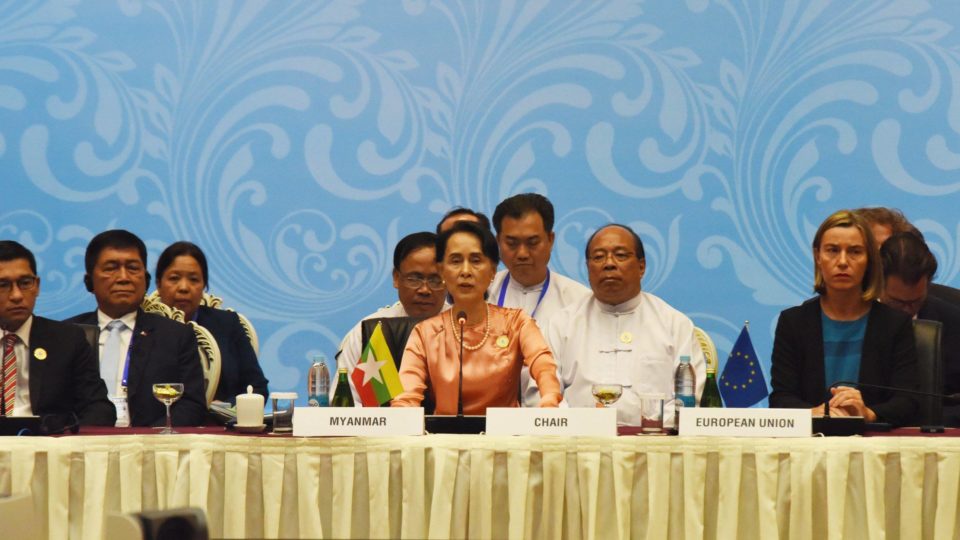This story was based on reporting by the Associated Press that has since been corrected. We have also published a correction here. The original story is below.
Myanmar State Counsellor Aung San Suu Kyi told a gathering of European and Asian foreign ministers yesterday that the world’s current state of instability is partly caused by illegal immigration, saying such movements of people spread terrorism and violent extremism, the Associated Press has reported.
She said today’s conflicts can be traced to “illegal immigration’s spread of terrorism and violent extremism, social disharmony, and even the threat of nuclear war. Conflicts take away peace from societies, leaving behind underdevelopment and poverty, pushing peoples and even countries away from one another.”
Though she did not mention the Myanmar military’s mass displacement of Rohingya civilians during her speech at the Asia-Europe Foreign Ministers’ Meeting in Naypyidaw, her comment echoed the position of the Myanmar military, which is that the current refugee crisis is the belated result of the colonial-era migration of laborers from the Bengal region of India into Rakhine State.
“Their population growth and their attempts to grab land by driving out the natives…through violent attacks has led to the eruption of Rakhine-Bengali conflicts,” read an October 24 Facebook post by the Office of the Commander-in-Chief.
Myanmar’s most recent military campaign in Rakhine State has driven more than 620,000 Rohingya civilians over the border into Bangladesh. The UN has referred to the campaign as “ethnic cleansing,” and politicians and rights organizations have called for the imposition of international sanctions on Myanmar and its leaders.
The Asia-Europe Foreign Ministers’ Meeting, which continues today, focuses on economic cooperation, but many expect the Rohingya refugee crisis to come up during the discussions.
Despite blaming conflict and terrorism on immigration, Suu Kyi did not acknowledge the root causes of immigration, which include war and persecution.
A report released today by Amnesty International presents evidence that Myanmar’s mass displacement of Rohingya was preceded by decades of disenfranchisement, social exclusion, and restrictions on basic rights, such as freedom of movement and the right to an education.
The report says Myanmar’s discriminatory policies against the Rohingya amount to the crime against humanity of apartheid.




